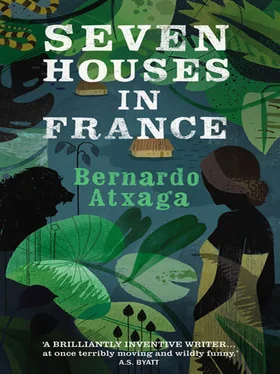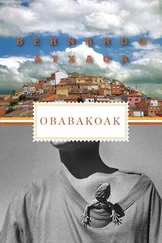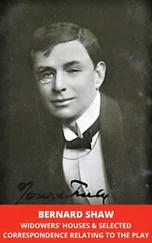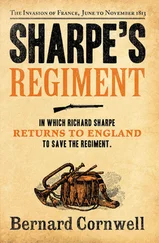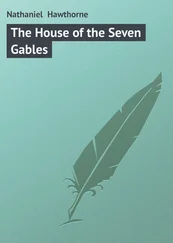He had gone barely a hundred paces when he saw the mugini . There was no one there, and it seemed as deserted as the village they had visited earlier. Looking for some sign of movement, his eyes alighted on a red-and-grey bird on the roof of the hut. It was a parrot, a muk .
The bird was not in its usual place, in the wooden cage that hung, with its door open, at the entrance to the hut. As he approached, the parrot hopped nervously away from him. Ever more troubled by Livo’s presence, it finally began shrieking: ‘Bamu! Bamu! Bamu!’
Livo went into the hut. The girl’s body lay on the floor. Her hair was slightly longer than he remembered and fell in waves about her ears. The lobes of her ears were stained with blood.
‘Bamu! Bamu! Bamu!’ cried the parrot from its perch outside on the roof.
Livo knelt down beside the girl and closed her eyes.
He stumbled away from the mugini . An hour later he was with his daughter.
Lulago could not see her father’s oimbé , but she didn’t need to. He looked terrible, as if he had aged ten or fifteen years. There were dark shadows under his eyes, he had grown thinner, his neck and throat were swollen and bruised. His inner state was even worse, and Lulago only had to see her father’s eyes to know what he was feeling inside: her father felt that he had reached the end of his life.
Livo went and sat down at the foot of an okoume tree, and Lulago placed a small amount of tobacco and some cigarette papers beside him. Soon, a group of children appeared, because someone had noticed the arrival of ‘the old man who works for the white men’, and they wanted biscuits. Lulago, however, would not let them near him. She sat down at the door of her hut and watched him while she sewed.
Her father resembled a sack that someone had left lying under a tree. He didn’t move or call out to her. She waited patiently, and when she finished her sewing, she started preparing the cassava bread for supper. Only when the first shadows of evening began to fill the village and silence fell in the jungle — it was time for the monkeys to sleep, time for the birds to sleep too — only then did she notice a small cloud of smoke beneath the okoume tree. Her father was smoking and gradually returning to himself.
Livo was also watching the smoke and allowing his thoughts to organise themselves around it: where should he go, how, when? He decided that he should go first to the Twa village on the shores of the Lomami and talk to Kadissa, the medicine woman who had been caring for his people for many years now; then he would travel on as far as a narrow stretch of the river, where he would wait until the Roi du Congo returned from its mission in Samanga. He had to speak to Captain Lalande Biran before the steamboat reached Yangambi.
Kadissa did not belong to the Twa tribe and looked more like a Watusi, tall and strongly built like Bamu. She was very old and capable of doing effortlessly what neither Lulago nor anyone else could do: she could see a person’s oimbé . Not only was she the best medicine woman in that part of the jungle, she was also the real chief of the Twa people in Lomami. Everyone, including hunters and warriors, came to ask her advice.
When she saw Livo, she took some ointment and rubbed it on his neck.
‘That will pass,’ she said, ‘but as for the rest, I’m not so sure. You look exhausted, dark, anxious, frightened, filled with a desire for revenge. I know you are a man of strong spirit, but those are too many feelings to have at one time.’
Livo sat cross-legged on the ground. At that moment, he was the child, and the woman before him, Kadissa, who was almost twice as tall as him and dressed entirely in yellow, was the Mother.
‘I haven’t brought you anything, not even some biscuits,’ said Livo.
‘Kadissa can live without sweet things,’ responded the Mother.
‘I have come to ask you something,’ said Livo. The ointment was warm on his neck.
‘What has happened?’
‘The white men are in the habit of stealing women from the jungle and taking their pleasure with them,’ explained Livo. ‘Some, like Captain Lalande Biran, only want very young girls, but most, Lieutenant Van Thiegel and others like him, don’t care …’
Livo opened his heart and spread it out before the Mother as one might a handkerchief. There for her to see were his exhaustion, darkness, anxiety, fear, and his desire for revenge. Kadissa picked up that handkerchief and, metaphorically speaking, tucked it away in her breast. Then, with Livo following behind, she got up and, without a word, went over to the vegetable patch next to her hut.
In a hollow in the ground, behind some reeds, stood three baskets. Kadissa lifted the lids so that Livo could look inside. Each basket contained a black mamba.
‘The largest is for the Drunken Monkey; this one for the Long-necked Dog; and this, the youngest, for the Captain. He will die more slowly, because the poison is weaker, but that is how it should be. The Captain is the commanding officer in Yangambi. He should have stopped this happening. Let him suffer then.’
The snakes were ceaselessly coiling and uncoiling.
‘They’re very hungry and have all their venom inside them,’ Kadissa added. ‘At this moment, they would be capable of attacking a lion.’
Kadissa showed him some pincers with which he could handle the snakes safely. Livo said that he didn’t need them, that he had a pair the same in Yangambi.
‘I’ll throw one snake in on top of the Long-necked Dog when he’s sleeping in the club storeroom. I’ll put the Captain’s snake in his bed. And as for the Drunken Monkey, I haven’t yet decided.’
‘Do you have mice there?’
‘There are lots in the storeroom and in the granaries.’
‘Now and then, put a few in the basket. The snakes need to be hungry, but not starving.’
‘I must go now, Mother.’
‘Go then.’
Kadissa looped the handles of the baskets onto a pole so that he could carry them easily.
It was impossible to cross to the other side of the Lomami at that point and so he continued on to the next Twa village.
‘I would like to have brought you biscuits,’ he told the boys standing by a canoe, ‘but since I haven’t, I will send some with my daughter Lulago. I need to cross to the other side.’
‘What food have you got in those baskets?’ asked one of the boys.
‘I do not bring food, I bring death,’ said Livo.
‘Are you a rebel?’ the same boy asked.
‘No.’
‘How do we know you will send us biscuits?’
‘I promised Kadissa.’
They all smiled and started pushing the canoe out into the water.
The baskets carrying death did not weigh very much, and once he had gained the farther shore, Livo met with no further obstacles. By evening, he had reached the stretch of river he was looking for, and there he spent the night.
He woke the following morning and looked at his oimbé . He had never known it so black and shining, but it did not prevent him from thinking clearly.
He took the lids off the baskets and peered in at the snakes. They were restless and raised their heads, flicking their tongues in and out, trying to capture the smells of that new place. He wondered how best to go about things. He remembered that one day the Long-necked Dog had given a drop of cognac to a mouse he had caught in the club storeroom, and that the little creature had become completely tipsy. Perhaps it would be a good idea to leave a drunken mouse on the bodies of each of the three men condemned by Kadissa to die; he could do this while they slept, at the same time as he slipped the mambas underneath the mosquito net. The snakes would smell the mouse and move towards it. When they felt this movement, the condemned men would also stir in their sleep and then the mambas would strike.
Читать дальше
